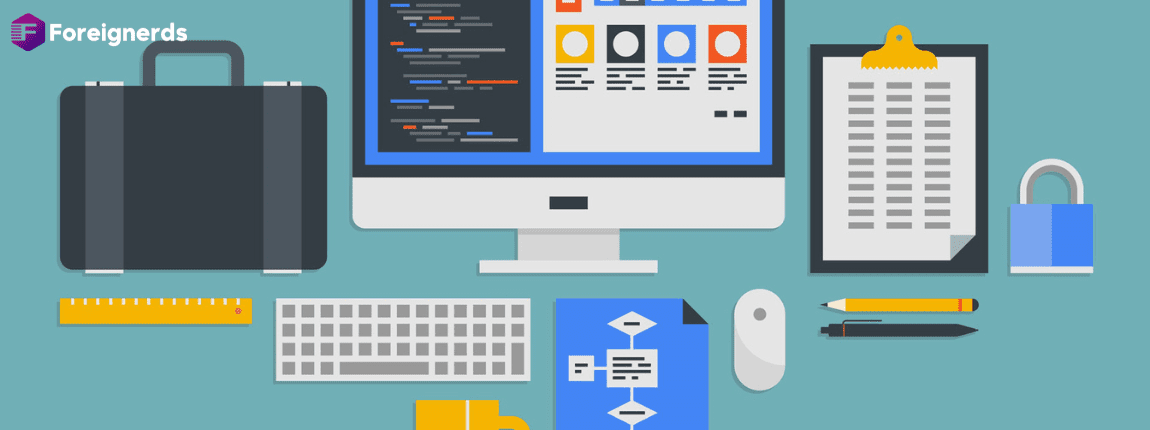- Home
- software development
- What Does Fintech Mean? Uses and...

Financial technology, or FinTech, is a term that has significantly evolved over time. Initially used to describe the technology utilized by banks and financial institutions for their back-end operations, FinTech has now taken on a broader and more consumer-oriented meaning. In this article, we’ll delve into what FinTech means, its uses, and provide examples of how it’s transforming the financial landscape.
FinTech, in its broadest sense, refers to any innovative technology that enhances and automates the delivery of financial services. This technology is designed to streamline financial processes for both businesses and consumers. It leverages specialized software and algorithms, primarily used on smartphones and computers.
When FinTech first emerged, it was centered around the technology that financial institutions employed in the background. However, it has since shifted its focus towards consumer-oriented services. Today, the definition of FinTech encompasses a wide range of sectors, including:
FinTech has revolutionized how we bank, offering user-friendly mobile applications, seamless transactions, and easy access to our finances.
The education sector has also benefited from FinTech, with platforms that make student loans more manageable and accessible.
Robo-advisors and investment apps have made it easier for people to invest and grow their wealth.
FinTech platforms have made fundraising and contributions more efficient and transparent for non-profit organizations.
One of the most well-known aspects of FinTech is the rise of cryptocurrencies like Bitcoin, Litecoin, and Ethereum. These digital currencies are changing the way we think about money and financial transactions.
In a nutshell, FinTech encompasses any company that utilizes the internet, cloud services, mobile devices, or software technology to connect with financial services or provide them. This includes everyday activities like sending money to a friend, making online payments, using online-only banks, or investing in fractional stocks through smartphone apps.
FinTech is especially beneficial for the roughly 2 billion people worldwide who don’t have traditional bank accounts. It provides them with access to financial services without relying on traditional brick-and-mortar institutions. With mobile banking, individuals can use debit cards, ATMs, and even secure credit cards without visiting a physical bank branch. This accessibility has been crucial in bridging financial gaps and increasing financial inclusion.
To gain a deeper understanding of how FinTech is reshaping our financial world, let’s explore some notable examples:
Cryptocurrency exchanges like Coinbase have made it easy for users to buy, sell, and invest in cryptocurrencies. The blockchain technology behind cryptocurrencies like Bitcoin is also finding applications beyond finance, such as data verification and reducing fraud.
Open banking is a disruptive concept that involves third-party access to bank data through blockchain technology. It allows third-party providers to build applications that create a network of interconnected financial services.
Apps like Venmo, PayPal, and CashApp have simplified peer-to-peer transactions, making it easy to split bills or pay for purchases with your smartphone. Even tech giants like Facebook and Google have entered this space.
Crowdfunding platforms like Kickstarter and Indiegogo have expanded beyond financing businesses to include support for various causes and personal expenses. Peer-to-peer lending platforms like LendingClub allow individuals to finance loans to other users.
Apps like Robinhood, Stash, Acorns, and Public have made stock trading accessible to virtually anyone with a smartphone. Some platforms offer robo-advisors to manage investments, while others allow users to pick and choose stocks.
Companies like Affirm, Klarna, and Sezzle offer flexible online financing options for consumers, especially those with no credit or limited credit history. This helps e-commerce businesses attract customers by providing installment payment options.
The insurance industry has seen significant disruption with the emergence of insurtech. Companies are using technology like GPS tracking and wearables to create more individualized policies and better pricing based on user behavior.
Apps like Mint and TruBill have simplified budgeting and expense tracking for consumers. These apps provide insights into income, monthly payments, and expenses, helping users make informed financial decisions.
Services like Credit Karma and Credit Sesame offer free credit score monitoring, enabling users to stay informed about their credit health and identify fraudulent activities promptly.
Businesses benefit from FinTech through cloud-based platforms, customer relationship platforms, and automation technologies. These tools help organizations manage finances, track spending, and streamline processes.
The future of FinTech is bright. In recent years, this industry has received substantial funding and has given rise to numerous unicorn companies. As of 2018, venture capital-backed financial technology firms were worth $147.37 billion.
Consumers clearly desire the convenience and innovation that FinTech provides, and businesses stand to gain significant advantages by embracing these technologies. Failing to adapt to the emerging FinTech landscape may leave you trailing behind the competition.
So, whether you’re a consumer looking for better financial services or a business seeking more efficient financial solutions, FinTech is at the forefront of these advancements, continually shaping the way we manage our money and interact with financial services.
In conclusion, FinTech, or financial technology, encompasses a wide array of technologies and innovations designed to improve and automate financial services. It has evolved from backend financial systems to consumer-oriented services, offering solutions in various sectors like banking, education, investment management, and more. Notably, cryptocurrencies, open banking, mobile payments, crowdfunding, and insurtech are prime examples of how FinTech is changing the financial landscape. As we look ahead, the future of FinTech appears promising, with increasing investments and consumer demand for these transformative technologies.
© 2013 - 2025 Foreignerds. All Rights Reserved